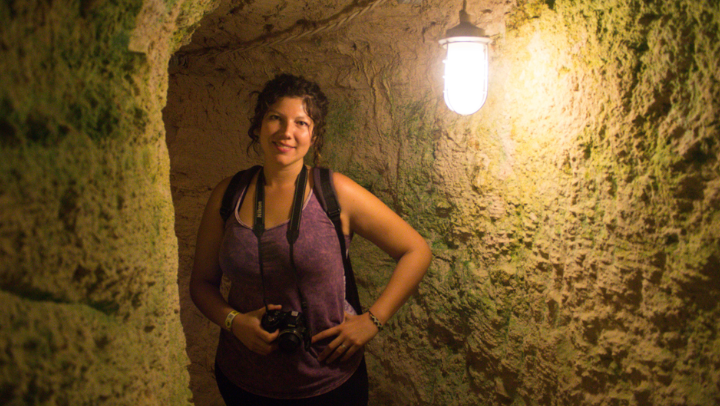SDSU Imperial Valley public health professor joins program to combat binational public health issues
The 2025 Leaders Across Borders diploma program gathers experts in public health from California, Texas and Arizona.

With a desire to strengthen her diplomatic capabilities, Linda Lara-Jacobo, SDSU Imperial Valley assistant professor in public health, has joined the 2025 Leaders Across Borders diploma program.
Led by the U.S-Mexico Border Health Commission, the program aims to foster leadership and diplomacy skills that strengthen binational collaboration and enhance public health in the U.S.-Mexico border.
Lara was motivated by a desire to strengthen her diplomatic capabilities, and being bilingual was a key requirement, highlighting the program's commitment to cultural and linguistic inclusivity.
“Through various research programs and initiatives I’ve had with Mexican researchers, I’ve learned that having diplomatic knowledge is important to implement research-based solutions,” said Lara. “When we have both a diplomatic and science perspective, we’re able to better serve our communities and our region. One is not affected without the other.”
The program accepted a diverse cohort of 12 scholarship recipients, with approximately 20 participants in total drawn from border states including Arizona, Texas and California. Over eight months, participants will engage in five training modules totaling 120 hours of instruction. The structure included three in-person sessions, a public health diplomacy project, and a final written presentation, culminating in a graduation event in Monterrey, Mexico in the fall.
The first in-person session was held in Tijuana, Mexico with other meetings in border regions such as Arizona and Sonora, Mexico. This immersive approach allowed participants to directly share their knowledge on binational issues they aim to address.
One focus of the program is developing long-term partnerships with Mexican counterparts to address shared challenges at the border, such as coming up with solutions for infectious disease outbreaks, without isolating efforts of one side.
“Science works the same in any country, but protocols in each country are always different,” said Lara. “It’s really important to know how to collaborate with two different communities, even if learning about a new field, like diplomacy, is required.”
What interested Lara the most about the program is its emphasis on integrating both scientific and diplomatic perspectives. Participants will explore how science alone may fall short if not paired with a diplomatic background. For example, diving into research about tuberculosis along the border, particularly with the problem of micro-resistant strains, demands collaborative binational protocols.
Lara emphasized the importance of community collaboration and saw this experience as a stepping stone toward stronger binational ties.
“I see this opportunity to better serve our Imperial Valley-Mexicali region and help bring our perspective into the table,” said Lara. “Realistically, if we want to tackle public health issues in our region, it has to be collaboratively from both sides. We cannot face one problem alone without enhancing knowledge, solutions or perspectives.”



